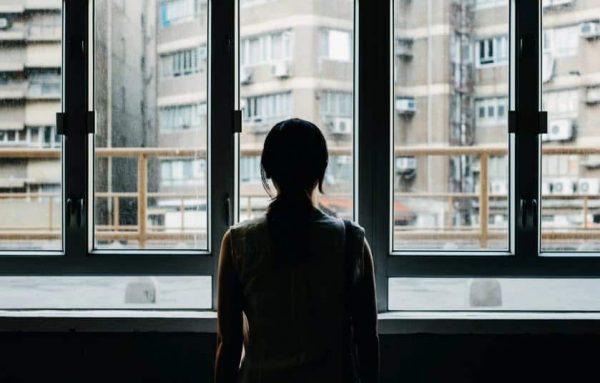
In January 2020, people didn’t know what this year would be like. Celebrating the New Year, rejoicing at possible changes, we did not expect such events. What’s the effect of coronavirus and quarantine on people’s psychology and how will people live after quarantine? This question probably interests every person. We have faced unprecedented measures restricting the rights and freedoms of people. Has humanity gained or lost from this? Let’s have a closer look.
PS The article has an analytical and critical direction. The idea is to present the events taking place in the past six months from different points of view.
Excursus into history: how did the coronavirus emerge?
The history of the appearance of SARS-CoV-2, which provoked the disease COVID-19, is quite banal. China is a well-known “supplier” of viruses to the whole world. The region has often been the starting point for a variety of pandemics. Coronavirus of this type appeared in China at the end of 2019, in December. Since January, the World Health Organization has been observing what was going on in China. Finally, on March 11, a pandemic was declared in the world. It meant that the virus found in China has gone global.
Further, humanity has witnessed unprecedented events in history. COVID-19 is not the first pandemic that humans have experienced in the past 100 years. Preventive measures of paramount importance (social distance, hand disinfection, protective masks) went hand in hand with quarantines. The very word “quarantine” refers to another word – the Italian term “quarantena”, that is, “forty (days)”. However, people were locked in their homes for much longer than forty days. Restriction of movement, the right to receive medical care, labor, registration of relationships, travel ban. That’s not a complete list of restrictions that counties imposed on their people.
Consequences of “fighting the virus”
The United Nations eventually declared: the current pandemic has negatively influenced the social and economic well-being of people. World recession, depression, hopelessness – the humanity has faced the situation close to the crisis of the 1930s. During this period of the Great Depression, a wave of widespread famine has taken away many lives around the world. The cancellation or postponement of sports, religious, political and cultural events has led to mass panic. People were cut off from communication with other people, schools and universities were closed. The socialization process is under threat.
On the one hand, the coronavirus restrictions have had a positive impact on the environment. Scientists have recorded a decrease in CO2 emissions. The reason is the shutdown of enterprises and factories. On the other hand, globalization was questioned, obliterating the achievements of the last decades by closing borders between countries. Social injustice, inequality, xenophobia and discrimination have increased. People found themselves in a situation of conflict of interests: biological safety versus universal human morality. The question arose: how easy is it to refuse from constitutional rights and freedoms? These rights and freedoms cost too much to the people who fought for their values. Is epidemic panic enough to abandon the achievements of the post-war period? For the first time, the Declaration of Human Rights was questioned. Quarantines have affected not only the economy, but also the psyche of people.
How do people perceive the pandemic?
The difference between the coronavirus pandemic and previous pandemics is the overwhelming support of the media. Briefings of Health Ministers, daily operational information, and statistics. People were divided into five categories:
- The first category of the population was strongly affected by panic. Statistics had a negative impact on the human psyche. The news about the sick people was terrifying.
- The second type of people was strenuously engaged in self-isolation, quarantine, and staying at home. Safety measures, health concerns were what interested these people.
- The third group of the population refused to believe in the virus. Disbelief and skepticism are partly due to a large amount of false information about the coronavirus. The pressure from the police and the media also affected. The pressure on the psyche led to the opposite effect – the defensive reaction. People perceived the situation as a joke, a farce, defending themselves against the anxiety stirred up by society.
- The fourth category included medical workers, doctors who were busy with work knowing the real situation. However, this knowledge relates to local points, so doctors do not have a holistic vision of the events.
- The fifth group includes people striving to find the “golden mean”. This is a kind of moderate behavior, a humane attitude towards society. However, this category is the smallest. The main thing here is the analysis and critical perception of information.
How do restrictions affect the psyche of people?
The behavior of most people today is neurotic. This kind of behavior is a response, a reaction to a certain stimulus. A behavior is called adequate when it is consistent with challenges, with the influence of the environment.
How to deal with panic and anxiety attacks?
The feeling of panic and anxiety takes root deeply. News with negative headlines, fear-stirring information affects the state of the psyche. There are several ways to handle this:
- Refuse (for a while) from reading the news. This is especially true for articles on diseases, breaking news and information about the subject of panic. The psyche feels hurt by the news that is perceived painfully. Living in constant stress harms a person. Being out of the news works rarely. Therefore, psychologists advise reviewing current data on the coronavirus no more than once a day. An obligatory requirement is adequate and critical perception of information.
- Avoid “vacuum bubbles”. The Danish philosopher Søren Kierkegaard emphasized the importance of routinization for life. Routine, repetition of things saves from the terror of the unknown. So, everyday problems do not disappear even in the era of coronavirus.
- Human life is a bizarre combination of work and free time. During quarantine, hobbies become important. Productivity, activity is a powerful resource that helps to maintain health, including mental health.
Is there life after quarantine?
Countries and people are gradually returning to life. UN and WHO declare the dangers of repeated strict quarantine restrictions. Cinemas, libraries, shopping centers are working again. Diving into the “alternative reality” of the theater or literature is one of the ways to deal with psychological difficulties. During the period of quarantine and self-isolation, people have got new opportunities – to explore the world online, including online libraries, “bookshelves” and literature sites.
The main difficulty of post-quarantine existence is the need to get used to public life again. People are afraid of one another, perceive one another as a potential danger. The discourse of “infectiousness” prevails in society. Words are a powerful tool of psychological impact. Panic is a consequence of “making it a big deal.” This happens because people sometimes do not distinguish their inner world from the outer world. Reflection and criticism are not accessible to every person. People do not cope with their fears and anxiety, so they let their worries out into the world. Social networks are full of scary messages.
Coronacrisis as a crisis of trust for people
“Coronacrisis” is a new term that has entered our lexicon with the current pandemic. The crisis turned out to be not only economic but also psychological. However, people share a common sense of powerlessness while facing limitations and danger. Why is there a feeling of helplessness? First of all, the reason for this feeling is the inability to control your life or plan your future. People are tormented by the fear of uncertainty in the future.
Each person appears to be potentially dangerous. This feeling is facilitated by the concept of an “asymptomatic carrier” of the virus. This means that the appearance of people does not allow them to make a conclusion about their physical state. Both sick and healthy people are obliged to wear masks. “Mask regime” negatively affects the psyche of people, creating an atmosphere of constant tension and stress. Quarantine restrictions are shocking to society not used to the violation of rights and freedoms. Fearing deadly disease people were locked up at their homes. People agreed to sacrifice their freedom of movement for the sake of epidemic measures. However, they faced disappointment: the authorities admitted that some restrictions were imposed with only one purpose. Which one? In order to intimidate a person, to imbue fear. As a result, a crisis of trust between society and state authorities has arisen.
Is Maslow’s Hierarchy of Needs no longer relevant?
The pandemic allowed us to take a new look at human needs. So, Maslow’s Hierarchy of Needs looks different now. The base of the pyramid contains the “natural needs” of people. That’s the need to feel safe and enjoy physical well-being. However, in the era of the pandemic, these needs turned out to be not at all fundamental. Quarantine and severe restrictions have obliterated the human right for well-being. It is important to recall the definition of health here.
Health is a state of not only physiological but also psychological and social well-being. The coronavirus fight demonstrated that the authorities only cared about the physiological aspect. However, the economy and social well-being are interconnected. Countries prefer “adaptive” quarantines to tough measures. Humanity has faced a choice: economic collapse or an increase in the number of victims from the pandemic?
What are the types of victims?
The victims can be different. In the era of coronavirus, societies suffer not only from the disease itself. Quarantine losses were no less impressive. Thus, the statistics of deaths from other diseases, as well as from suicide, have increased. People have lost access to health care. Patients were denied to be hospitalized and undergo planned surgeries. All these phenomena have contributed to an increase of depression among people.
The “ethical dilemma” has turned into an “epidemic dilemma.” The principle of humanity that underpins the ethics of the Western world puts security first. Mercantile economic interests are being relegated to the background. However, society depends on the state of the economy. The level of economic well-being determines the capacity of medical care, too. The crisis has pushed people face to face with impoverishment and unemployment. Loneliness has replaced pleasant companies, cultural events and delicious food. Consumer interests have changed. People began to appreciate the little things that had not been noticed before.
Has the psychological health of the population been affected?
In fact, psychological health is just one part of what we call health. The psychological aspect complements two other aspects: physical and social. At the very beginning of self-isolation, an article was published in the scientific edition of The Lancet. The text mentioned the impact of quarantine measures on the psychological state of people. The following conclusions were made:
- isolation contributes to increased anxiety;
- loneliness often causes insomnia;
- quarantine is the cause of emotional difficulties and psychological instability;
- finally, long-term isolation develops post-traumatic syndrome and depression.
People were locked up, without the opportunity to have personal space. The greatest difficulties were experienced by families who shared a small living space. Experts and social services have recorded an increase in cases of domestic violence, suicidal mood. People suffered from panic attacks and emotional disregulation. On the other hand, a person with coronavirus also felt like an exile.
Influence factors on people’s psyche
Pandemic, isolation and uncertainty are excellent conditions for the “prosperity” of depression. In developed countries there was a special coronavirus-support service. Social authorities were concerned about the emergence of suicidal moods among people. Until now, in fact, it is impossible to assess the real level of impact of the pandemic on society. However, cognitive and behavioral psychology experts emphasize that people need to return to their normal lifestyles.
What problems are exacerbated in isolation?
Self-isolation exacerbates the psychological problems that tormented a person before. It is more difficult for people to cope with difficulties on their own. This leads to depression. Gloom, hopelessness, apathy, fatigue – this is an incomplete list of symptoms of depression. A person loses interest in life, which is complicated by the inability to change the situation.
What affects the severity of people’s psychological state during the pandemic? There are several factors:
- character features;
- the presence of mental disorders;
- resources level (money, social, etc.).
As a rule, such “risk factors” differ from person to person. Introverts tolerate isolation easier than extroverts. Quarantine has the strongest impact on children, teenagers and elderly people. These are the categories of population that suffer without socialization. The economic condition has also had a negative affect on people: unemployment, money problems, indefinite leaves.
Will there be “new normality”?
Fans of films about the apocalypse, of course, will be happy to face “new normality.” However, people accustomed to the traditional way and rhythm of life, perceive the current realities as a verdict. That said, the level of pressure on the human psyche from the media is gradually decreasing. Coronavirus rhetoric is losing its intensity. It should be said that the panic around the concept of “new normality” is superfluous. Changes are a normal, natural part of human life.
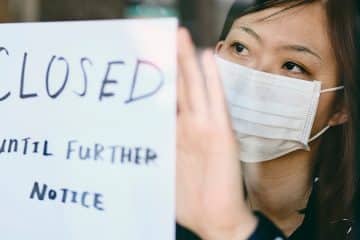
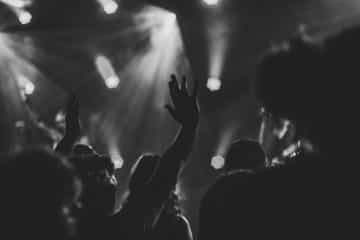
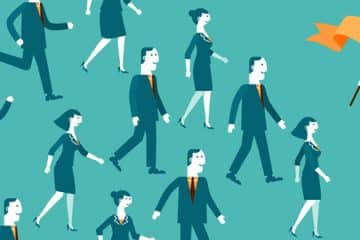

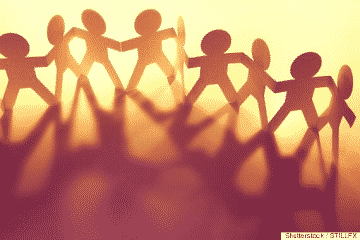

A very difficult situation has developed since the end of 2019, when this pandemic appeared, it became extremely difficult absolutely everywhere, people began to lose their jobs, unprotected categories of people became even more threatened, but seemingly perfectly healthy people began to get sick, but psychologically, what in addition, it is very difficult! After all, sitting closed is always very difficult, especially when you live alone!
Everyone usually mentions that a person remains isolated and lonely. But we forget about another rather important problem – this is the fear of catching an infection almost everywhere, such people develop a paranoid syndrome, they are literally afraid of everything and this does not allow them to live fully at least at home, not that in public places or at work – i.e. have a social life. This syndrome does not allow a person to function normally, it should attract the attention of the world community.